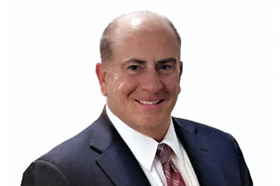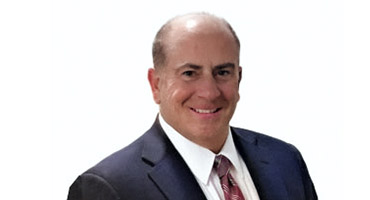Tax planning and technology present opportunities
During the final quarter of 2023, CFOs became increasingly bullish on their ability to meet demand, manage costs and hit their growth targets, indicating more confidence in business fundamentals than they have shown in the past two years.
Grant Thornton’s CFO survey for the fourth quarter of 2023 showed dramatic increases in finance leaders’ expectations of their ability to meet business goals related to their supply chain needs, labor needs, increased demands, cost control and growth projections.
Supply chain expectations in particular made a huge upswing, as two-thirds (67%) of finance leaders said they’re confident that their business can meet supply chain needs. That’s a rise of 22 percentage points over the 45% who reported confidence in their supply chains just one quarter earlier and it’s by far the highest mark reported since the survey began asking the question in the fourth quarter of 2021.
Meanwhile, 56% of CFOs expressed confidence in their ability to control costs, up 10 percentage points over the previous quarter. Taken as a whole, the survey indicates that CFOs are casting aside their long-standing cautious attitude toward growth and moving toward a more aggressive approach. They’re no longer dipping their toes in the water. They’re diving right in with confidence that they’ll be able to swim forward instead of just treading water.
“They’re confident in their supply chain and in their growth projections,” said Grant Thornton National Managing Principal, CFO Advisory Paul Melville. “And now what we’re seeing is they feel that they actually can deliver on their growth projections.”
The survey also shows an opportunity for many CFOs to drive business performance forward with a more strategic approach to tax planning and more implementation of technology in tax processes. Although 67% of CFOs said the technology in their tax functions is effective, that means one-third are working with inadequate tech tools.
A similar portion (37%) said their tax function is either compliance-only or just slightly strategic. These numbers indicate that in the year ahead, there may be opportunities to include tax leaders in strategic cash management discussions. Incorporating tax strategies that could lower an organization’s effective tax rate could ultimately free up access to funding at a time when capital is scarce.

“Tax leaders should have a seat at the table so the company doesn’t have gaps in what it is achieving compared with its competition.”
“Often there’s an opportunity in tax planning for companies to accelerate the achievement of their strategic objectives,” said Grant Thornton National Managing Partner, Tax Growth Jim Wittmer. “You don’t want this to be an afterthought. Tax leaders should have a seat at the table so the company doesn’t have gaps in what it is achieving compared with its competition.”
The survey polled 241 finance decision-makers from U.S.-based companies across the industry spectrum with at least $100 million in annual revenue. Fifty-seven percent of them said they are confident that they can meet their labor needs, up from 49% in the third quarter. This, too, was an all-time high since the question’s inception in the fourth quarter of 2021.
With confidence in so many vital areas surging, the portion of respondents predicting revenue increases rose to 71% from 66% the previous quarter. It’s yet another sign that CFOs are optimistic about growth — and their ability to deliver on their sunny forecasts.
Growth in a leaner cost structure
Although some economists are still predicting a mild recession in 2024, there were numerous macroeconomic reasons for optimism as 2023 drew to a close. The S&P 500 rose 24% in 2023, and the U.S. Energy Information Administration projected that households that use natural gas for heating will see their heating expenditures drop 21% for the winter of 2023–24 compared with the previous winter. Meanwhile, optimism is growing that the Federal Reserve is finished raising interest rates to battle inflation.
Overall, CFOs’ assessment of the U.S. economy was little changed from the previous quarter, with optimists (50%) outnumbering pessimists (24%) by about 2 to 1. In this environment, 56% of CFOs say they are confident in their ability to control their costs, a rise of 10 percentage points over the previous quarter. And they’re taking their foot off the gas just a bit with regard to cost control.
The portion of CFOs who ranked cost optimization as one of their top two areas of focus fell nine percentage points from the previous quarter to 36% — the lowest mark ever recorded in the survey. Now these are CFOs, and cost control is in their DNA, so it’s no surprise that cost optimization remains their top area of focus, as it has been for seven straight quarters.
However, the emphasis on costs is down, and yet CFOs’ expectations for profits remain flat compared with last quarter. That may be because revenue expectations have risen, along with the belief that CFOs have achieved what they can out of the cost basis and — while still focused on costs — are turning to growth opportunities to maximize the profit created by a leaner cost structure.

“CFOs are becoming increasingly confident in their ability to meet demand, manage costs, and hit on some growth targets for the first time in two years.”
“CFOs are becoming increasingly confident in their ability to meet demand, manage costs, and hit on some growth targets for the first time in two years,” Melville said.
One area that saw a dramatic shift in expense expectations is facilities and real estate footprints, where spending has been low ever since the COVID-19 pandemic accelerated a shift toward remote working early in 2020. Forty percent of finance leaders predicted that their facilities and real estate expenses would increase in the next year. That’s an all-time high in the survey and it’s up from 27% just one quarter earlier.
Expectations for recruiting expense increases, meanwhile, dropped eight percentage points to 26% in another indication that finance leaders are more confident that they can meet their labor needs. Meanwhile, 45% of respondents reported potential cost cuts in human capital expenses related to headcount and compensation levels. That’s up from 32% in the previous quarter.
Tax liabilities on the rise
One area where CFOs expect costs to rise is in their tax liability.
Changes built into the federal tax code are restricting the ability of companies to deduct interest from their debt and key pieces of the Pillar 2 global minimum tax regime that take effect in January will affect multinational companies. With these changes coming, 68% of CFOs expect their tax liability to grow in the next 12 months.
Despite these concerns, a substantial minority of CFOs are not making great strategic use of their tax departments. Almost four in 10 (39%) of finance leaders said their tax leader is involved only somewhat, a little, or not at all in strategic conversations with the C-suite of their organization.
CFOs may find that their whole business benefits if they welcome more strategic input from their tax functions.
“A big chunk of the dollars that go out the door to pay tax obligations could be used to fulfill a lot of the other objectives of the company,” Wittmer said.
Finance leaders also may create savings by implementing better technology. Artificial intelligence is emerging as a go-to technology in tax, with 30% having implemented AI and 30% planning adoption within the next 12 months.
The problem is that each of the following technologies has been adopted by substantially less than 50% of tax departments:
- Data analytics software (41%)
- Business intelligence/visualization tools (29%)
- Tax provision software (31%)
- Tax automation (38%)
- Tax compliance software (38%)
Wittmer said organizations that take advantage of tax technology can enable better decisions and the movement of specialists into more strategic roles.
“The addition of technology really helps fulfill some of the mundane administrative tasks that are necessary on the tax front,” Wittmer said. “The question is then how you redeploy the dollars once you’ve made the appropriate investments. You can use it for better data collection and improving dashboards and make informed and educated decisions with embedded technology and redeploy the people who were doing the back-office activities.”
Be bold
The key takeaway from CFOs’ reactions in this survey is that after years of caution, the time to be bold and pursue growth may be upon us.
With supply chain woes and human capital shortages abating, finance leaders can take advantage of the technology investments they’ve likely made over the past year and pursue growth in a more determined fashion. The survey shows that 49% of CFOs expect their IT/digital transformation spending to increase in the next year. That’s down nine percentage points from the previous quarter, but it’s still CFOs’ top area for projected expense increases. This also may indicate that after investing heavily in technology for quite some time, finance leaders are ready to capitalize on the benefits that their new tools can deliver.
Six in 10 finance leaders said they are confident that they can meet their growth projections. That’s an all-time high in the survey. The following strategies may help CFOs in that pursuit of growth:
- Re-evaluate your supply chain practices. Depending on your situation, better supply may allow you to stock up — or in an opposite approach, you may wish to draw down your inventory if you’re more confident in the resilience of your supply chain.
- Review your workforce spending. The top area cited for potential costs cuts was human capital expense related to headcount and compensation levels. With confidence in workforce sufficiency having grown, CFOs are taking a close look at what they’re spending on human capital.
- Boost your marketing. Almost half (45%) of CFOs expect their sales and marketing costs to rise in the next year. This may be the time to invest in demand generation.
- Plan tax strategies carefully. As the new year begins, take advantage of tax credit opportunities and minimize exposure. Although the survey doesn’t reflect huge concerns about the availability of capital, even though interest rates are high, tax planning is an opportunity to free up much-needed funds that can be put to good use.
“If you’re not engaged strategically with your tax leaders and you’re not thinking about tax structuring, you don’t have the optimal structure to take advantage of all the capital that’s available to you,” Melville said.
As confidence rises and cost concerns decrease, that extra capital could help fuel the growth that’s been elusive for so many companies for the better part of two years.
About the survey participants
Contacts:



Paul Melville
National Managing Principal, CFO Advisory Services
Grant Thornton Advisors LLC
Paul Melville is national managing principal in Grant Thornton Corporate Finance group and is located in Chicago.
Chicago, Illinois
Industries
- Construction and Real Estate
- Healthcare
- Manufacturing, Transportation and Distribution
- Retail and Consumer Brands
Service Experience
- Advisory Services



Jim Wittmer
Regional Managing Principal, Atlantic Coast, Grant Thornton Advisors LLC
Jim Wittmer is the managing principal for Grant Thornton’s Atlantic Coast region. He has more than 35 years of experience serving public, private and foreign-owned companies in a variety of industries.
Philadelphia, Pennsylvania
Service Experience
- Tax Services
- Strategic federal tax
Content disclaimer
This content provides information and comments on current issues and developments from Grant Thornton Advisors LLC and Grant Thornton LLP. It is not a comprehensive analysis of the subject matter covered. It is not, and should not be construed as, accounting, legal, tax, or professional advice provided by Grant Thornton Advisors LLC and Grant Thornton LLP. All relevant facts and circumstances, including the pertinent authoritative literature, need to be considered to arrive at conclusions that comply with matters addressed in this content.
For additional information on topics covered in this content, contact a Grant Thornton professional.
Grant Thornton LLP and Grant Thornton Advisors LLC (and their respective subsidiary entities) practice as an alternative practice structure in accordance with the AICPA Code of Professional Conduct and applicable law, regulations and professional standards. Grant Thornton LLP is a licensed independent CPA firm that provides attest services to its clients, and Grant Thornton Advisors LLC and its subsidiary entities provide tax and business consulting services to their clients. Grant Thornton Advisors LLC and its subsidiary entities are not licensed CPA firms.

Share with your network
Share